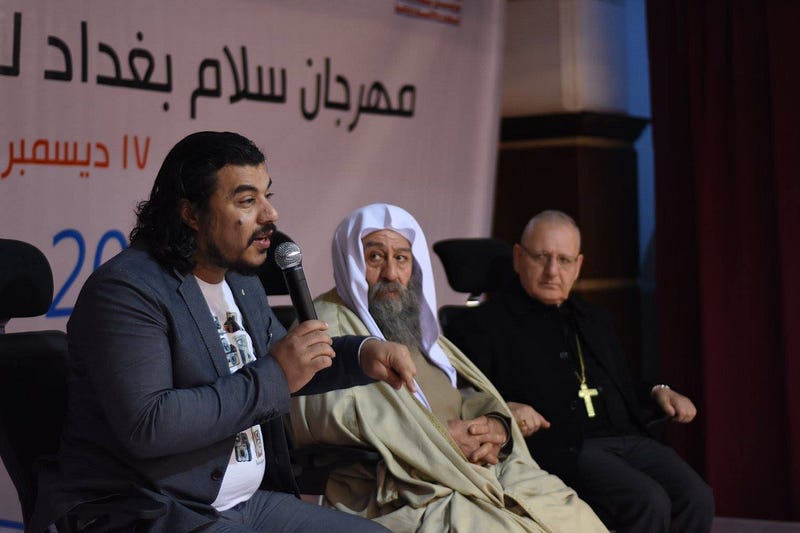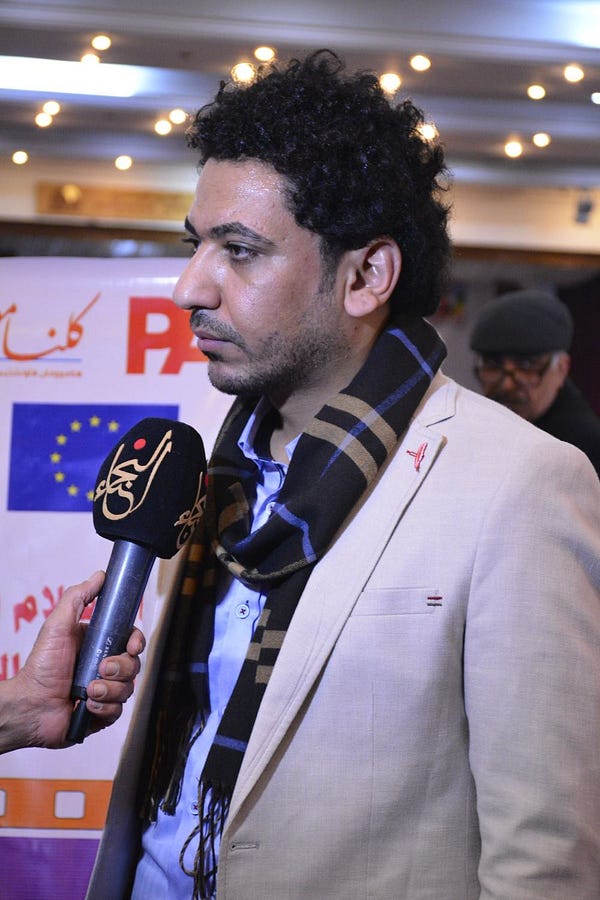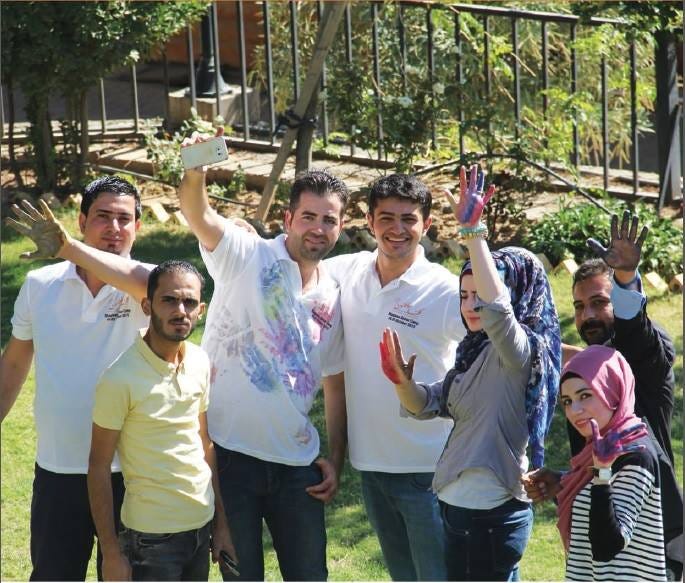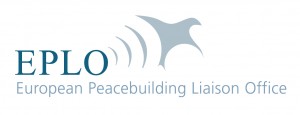PAX
Speaking ‘youth’ to power: Iraq’s young ambassadors for peace
Iraq’s millennials are casting off the limiting stereotypes about ‘youth’ to forge ahead with their ideas and visions of the country they want to see.

A significant part of Iraq’s population has come of age during a tumultuous period in the country’s history. An era in which Iraq’s story has been punctuated by the overthrow of Saddam Hussein’s regime, the presence of international troops, political conflict, violence inflicted by the self-proclaimed Islamic State and tenuous state-building. In the context of insecurity, international discourse on young people has tended to veer towards either ‘victims’ to be protected or ‘risks’ to be neutralised. While, within their communities and families, the default deference toward older people has meant that young adults have found themselves rooted in childhood roles of being ‘dutiful’ or ‘disobedient’.
One young person from Qaraqosh, Vanda, felt that there were too few opportunities to be involved in civil activism and a lot of young people weren’t getting the chance to work on improving their own situation.
Young people in Iraq are negotiating the same challenges as everyone else of their generation: how to build a career or a livelihood, how and when to start a family, where to live, how to find their place in society and plan for the future. As if that isn’t enough, this generation will also be responsible for steering the long-term reconciliation and reconstruction of a country after decades of war. Despite the enormity of this task, young women and men have been given very few opportunities to learn the ropes of decision-making or participate in systems of governance. The 60 percent of Iraq’s population that is under 24 years old constitutes a majority without agency, but there are some initiatives out there that have sought to change this.

In 2013, We are all Citizens was launched by Al-Mesalla Organization For Human Resources Development, al-Tahrir al Nuzumujiyya, Free Press Unlimited, and Independent Media Center Kurdistan in co-operation with PAX, a peace NGO from the Netherlands. With funds from the European Commission’s development co-operation arm, the project aimed to support the efforts of local people committed to alternatives to sectarianism politics in Iraq.
While the size of the reconciliation and reconstruction project in Iraq demands a country-wide effort, stratification in social, political, cultural and economic life has made co-operation across sectarian lines difficult and dangerous. The protracted period of insecurity combined with some incompetent and underhanded politicisation of identities means that people’s safety and prosperity is ever more reliant on a small and trusted in-group. As a result, young people have been brought up to be well aware of the fact that how and where they will live, work and fit into society will depend largely on connections within their own identity group.

For the young people involved in the project, breaking out of a sectarian mind-set was a breath of fresh air and, for many, it was the first chance to connect and reflect on the future of their country with their peers. The project started from the basics of event logistics, network-building, communications, conflict resolution, data collection and analysis and advocacy skills. It also required an investment of time and patience to mentor people who’d never been given any responsibilities, and to manage the inevitable miscommunication and disagreements that played out in the Facebook group. But after four years, the network of young citizenship ‘Ambassadors’ located across Iraq had consolidated and expanded; the young people involved were meeting with government representatives and other policy-makers to lobby on issues facing local citizens and to try to shape policy. “It really triggered a spirit of civic activism,” said Vanda.
In Basra, young activists campaigned for the restoration of a local church. In Dohuk, they lobbied for the rights of a family whose land had been grabbed, even getting the case to court. And, when the self-proclaimed Islamic State took over Ninewa province and some of the group found themselves displaced and stuck in camps, they were quick to organise and communicate their frustration to their representatives who had managed to settle themselves in houses. They organised a ‘Shout Out from the Youth’ conference and invited the Head of the Provincial Council to talk about youth-specific side-effects of displacement, like the disruption of schooling. By the end, they were invited to form a youth committee that would go on to become an institutionalised advisory body to the Council. Even in moments of crisis, the young leaders from the project were able to turn them deftly into moments of opportunity.

Two years on, the stories of the young activists and what they have gone on to do are still coming back; stories of people setting up NGOs to work on the role of youth in peacebuilding and LGBT rights, and starting careers in journalism, others who took up official positions in government, and one young woman who even became mayor of a town. Despite — or perhaps even because of — the experience of coming of age in a country racked by war and insecurity, young people who had long been locked out of governance are now following their own paths and making a contribution to the vision of a more peaceful future for Iraq.
Interviews and article by Terri Beswick.
